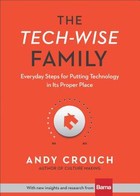The browser wars are heating up again, and this time, it's not about speed or features—it's about freedom. Google's recent implementation of Manifest V3 has effectively neutered uBlock Origin, the web's most powerful ad-blocker, forcing millions of users to reconsider their browser choices. Firefox, long relegated to the sidelines, is experiencing a renaissance as users rediscover what an open, customizable browser can offer.
The Ad-Blocking Apocalypse
The modern web has become an increasingly hostile environment. Between intrusive ads, tracking scripts, cookie notices, and pop-ups, the average webpage loads dozens of unwanted elements before displaying actual content. Ad-blockers like uBlock Origin have been our digital shields, but Google's Manifest V3 changes the game entirely.
While Chrome offers "uBlock Origin Lite," it's a pale shadow of the original. The full version of uBlock Origin, with its community-curated filter lists and advanced blocking capabilities, remains fully functional only on Firefox. This isn't just about blocking ads—it's about maintaining control over your browsing experience.
The Open Source Advantage
Firefox's open-source nature provides something Chrome cannot: transparency and trust. You can literally examine the browser's source code, understand how it works, and even fork it to create your own version. This level of openness becomes increasingly valuable as tech companies make decisions that prioritize their business models over user interests.
The browser's licensing allows for alternative distributions and modifications, creating an ecosystem of Firefox-based browsers tailored for specific needs. This flexibility stands in stark contrast to the locked-down nature of proprietary browsers.
Mobile Freedom
One of Firefox's most compelling advantages is its mobile extension support. While Safari and Chrome limit mobile extensions through app store restrictions, Firefox for Android runs the same extensions you use on desktop. This means full uBlock Origin functionality on your phone—something that's becoming increasingly rare.
The seamless sync between desktop and mobile Firefox creates a unified browsing experience that rivals Safari's ecosystem integration, but without the platform lock-in.
Customization and Privacy
Firefox offers features that power users have come to depend on:
- Multi-Account Containers: Isolate different browsing contexts (work, personal, shopping) to prevent cross-site tracking
- Vertical tabs: Native support for sidebar tab management without hacky extensions
- Advanced privacy controls: Granular settings for tracking protection, cookie management, and data collection
- Reader view: Clean, distraction-free reading mode for articles
The Performance Perception Problem
Many users report that Firefox feels slower than Chrome, though this perception often doesn't match benchmarks. Several factors contribute to this:
- Startup time: Firefox can take longer to launch, especially with many extensions
- UI responsiveness: Some operations, like bookmarking, may have noticeable delays
- Muscle memory: Years of Chrome usage create familiarity bias
However, these issues are often outweighed by Firefox's superior memory management with heavy tab usage and its robust extension ecosystem.
Browser Architecture Considerations
The architectural differences between Firefox and Chrome extend beyond just ad-blocking. Firefox's Gecko engine and extension system provide different capabilities and constraints compared to Chrome's Blink engine and Manifest V3 limitations.
The Trust Equation
Browser choice increasingly comes down to trust. Mozilla, despite its own controversies around data collection and partnerships, operates as a non-profit with a mission to keep the internet open. Google, while providing excellent technical products, has business incentives that may not always align with user privacy and choice.
Recent Mozilla decisions—like enabling privacy-preserving attribution by default and acquiring ad metrics companies—have raised concerns among privacy advocates. However, these features can be disabled, and the organization's fundamental structure provides more accountability than a for-profit corporation.
Alternative Paths
The browser ecosystem offers several paths for users seeking alternatives:
- Brave: Chrome-based with built-in ad-blocking
- Ungoogled Chromium: Chrome without Google services
- Orion: Webkit-based with Firefox extension support on iOS
- Waterfox: Firefox fork with extended legacy support
Each offers different trade-offs between compatibility, features, and philosophy.
## The Bigger Picture: Browser Diversity Matters
The push toward Firefox isn't just about individual user preferences—it's about maintaining a healthy web ecosystem. Browser monocultures lead to stagnation and vendor lock-in. When one browser engine dominates, web standards become whatever that browser implements, rather than open specifications.
Firefox represents more than just another browser choice; it's a commitment to keeping the web open, customizable, and user-controlled. As Google continues to shape the web around its advertising business model, Firefox offers a different vision—one where users, not advertisers, come first.
The recent surge in Firefox adoption following Chrome's ad-blocker restrictions suggests that users are ready to prioritize control over convenience. Whether this momentum continues will depend on Mozilla's ability to address performance concerns while maintaining the features that make Firefox unique. The browser wars may be far from over, but for now, Firefox is providing a compelling alternative for those who refuse to accept a web designed primarily for advertisers.
















